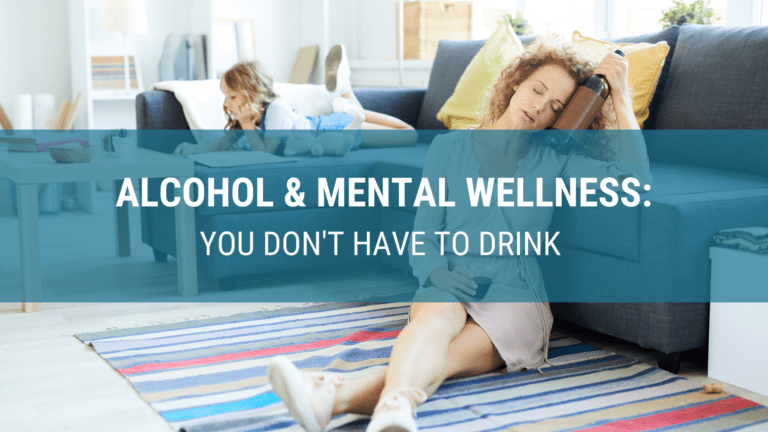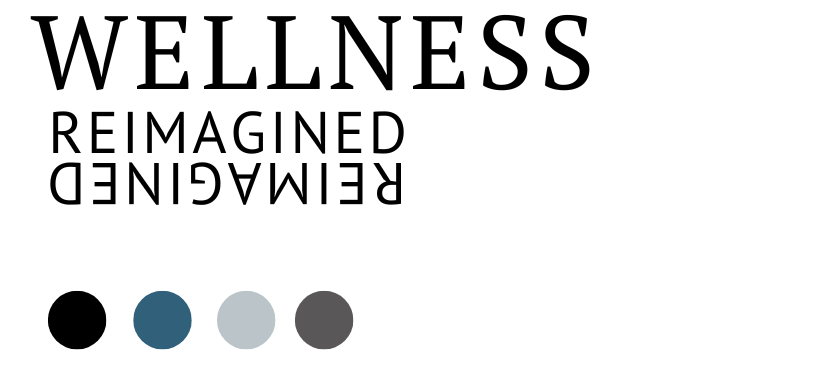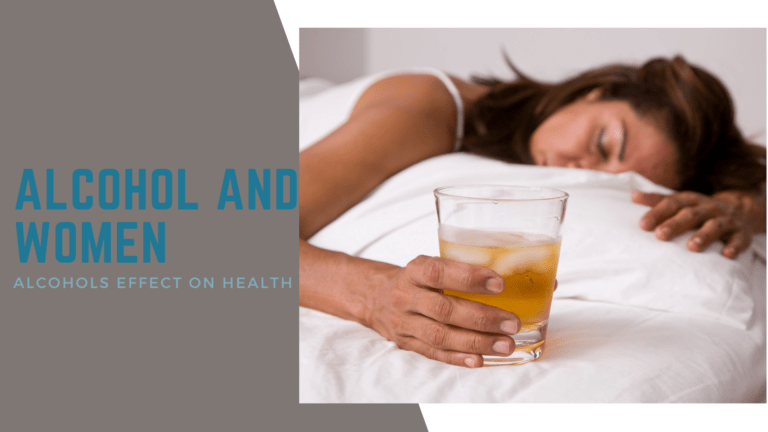Montana Myth Buster: Women, Alcohol and Mental Health
One woman's story of lifelong alcohol abuse and ongoing recovery

As our nation observes Mental Health Awareness Month, I would be remiss if I didn’t address the effects of alcohol on women’s emotional and mental wellness.
Sometimes people drink alcohol to aid with the manifestation of stress, anxiety, and depression. Alcohol alters how your brain cells signal to each other, causing you to feel peaceful. Other times people utilize alcohol to self-medicate. While this is reasonable for a brief time, this effect is short-lived.
This month, I have invited my colleague and friend, Kellie Adams, as a guest blogger. Kellie tells her story of her lifelong alcohol use and abuse, along with her opinion surrounding the shame and stigma accompanying addiction in women and the glorification of this “habit” that kills up to 43,000 women per year. (Please see my stats and information following Kellie’s narrative).
Kellie’s Story
Sitting at a community pool in 2012, I enjoyed reading a book titled “Mommies Who Drink,” laughing uproariously about the author’s shenanigans, watching my daughters swim, and drinking a tumbler of white wine. It was before noon, and I was already catching a great buzz, commiserating with the author of this honestly hilarious book. At least at the time, I found it humorous in a very raw and dark way.
In 2014 my daughters found me in my bedroom with a bottle of pills in my hand; I was ready to end my life because I couldn’t figure out how to live without alcohol. Those brave girls, ages 12 and 14, had to endure the heavy task of saving my life. My oldest instructed her younger sister to keep me away from the second-story windows while she called the suicide hotline. Meanwhile, cars started to arrive at our curb; my ex-husband, my best friend (drinking buddy), and another friend passionate about trying to save me. I sat on the floor in my living room, having just come from a blackout, wondering what the fuss was. I didn’t recall the suicidal ideation from just a half-hour previous and wondered why my ex-husband was standing in my house asking, “What happened to you?”
What happened? How did he not know? Had I been able to conceal my drinking so well for the past six years that he didn’t realize the depth of my addiction and despair? Were the emotional masks I donned for so many years brilliant enough that my extreme and all-day drinking had gone (somewhat) unnoticed?
Here’s the deal. I was shame-ridden as a mommy who drank. The one who started my day with a not-so-elegant coffee cup full of chardonnay in the kitchen while pouring a bowl of cereal or flipping a pop tart in the toaster, all while the Zanax I had washed down with morning wine kicked in. I had a supply of alcohol hidden in the hamper, spare closet, garage, and under every sink. I had backup booze in our backyard shed. My coffee tumblers were never full of java but afternoon red wine. Those creative and stealth containers accompanied me to concerts, games, and jovial playdates. I was smitten with road trips that included six-packs of beer or mini boxes of “purse wine.”
There was absolutely nothing glamorous about the way I drank, at least not in the last five years of my imbibing career.
I started drinking at the age of thirteen. Why? I was enamored with girls who seemed prettier than me, those who appeared to have it all together and flaunted confidence, dated the cutest boys and strutted the halls with popularity.
I hated my height. I hated my braces. I hated my big feet. I hated my skinny legs. I hated my flat chest. I hated being so lonely.
Longing to be a “big girl”; to be accepted and no longer shunned or ridiculed, I landed in a bottle while standing in a circle of popular girls. Alcohol pacified me for the next 33 years.
In 1999 I suffered through a nine-month stint with post-partum psychosis, fearful of hurting myself and my first child daily. While my drinking had not yet hit the crescendo, it was nonetheless my escape mechanism. However, I did hear whispers in my voice that I might have a problem with alcohol. The loudest message was that of my family’s history of mental illness and addiction.
Consumed by thoughts of my aunt’s schizophrenia and my maternal grandfather’s addictions, I resigned myself to this destiny. However, I had not considered that my own life might not fall prey to this sorted genealogy. I used alcohol to alleviate my fears about potential mental illness.
Time went on, and life persisted with depression, grief, and anxious moments. All placated by the drink. And why not? Society diligently romanticizes alcohol. Think about the onslaught of drink-related super bowl advertising. The Facebook “support” groups for the worn-out Mom; suggestions of self-care and escape through wine; and appealing ladylike product packaging.
The disease of alcoholism is far more than a justified habit. It takes more recovery than just a “Sober October.” Drinking is the symptom of a far more significant problem within us; what have we been hiding from, burying, pushing into a corner; what emotions aren’t we handling daily? Why aren’t we talking about it?
As a woman who is nearly eight years sober, I believe shame is killing many closet addicts and alcoholics—women in particular.
On June 8th, 2014, I weighed 128 pounds when I hit bottom. While I loved how I looked, I was also killing myself slowly. My blood pressure was 210/180. My liver enzymes were so elevated that my doctor suggested I may be in the early stages of liver failure or cirrhosis, and my daily anxiety was too much to bear; I pursued benzodiazepines as a method to calm my jitters.
So began the excavation of my life. I was digging and trudging through years of anxiety and fear that I had buried in booze. Heaps of emotions were buried inside so deep that even I had forgotten who I was.
Today, I weigh 160 pounds. I am blessed with excellent health as a 54-year-old menopausal woman. I am keenly aware of how close I was to death not so long ago. I sit in gratitude that I no longer need alcohol to have fun, thrive in my relationships, feel comfortable in my skin, and live an authentic life.
You don’t have to live in fear or shame. You also do not have to succumb to what has become the social norm for navigating and managing daily life. Reach out if you are struggling; alcohol and drugs don’t cure mental instabilities; they feed them.
Kellie Adams is a digital marketer living and working in Idaho. She is also working on her first book about her life as a sober woman.
Resources:
AA Hotline: https://www.aa.org/
Help Center: https://www.bozemanhelpcenter.org/
National Alliance on Mental Health: https://nami.org/Home
Substance Abuse and Mental Health Administration: https://www.samhsa.gov/
Mommies Who Drink by Brett Paesel: https://www.amazon.com/Mommies-Who-Drink-Memories-Ordinary/dp/0446699403

